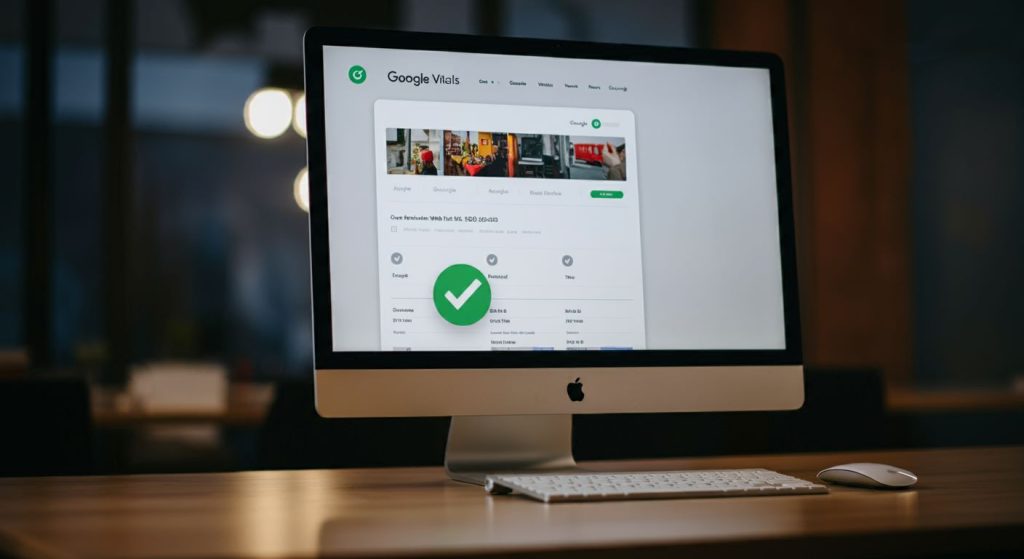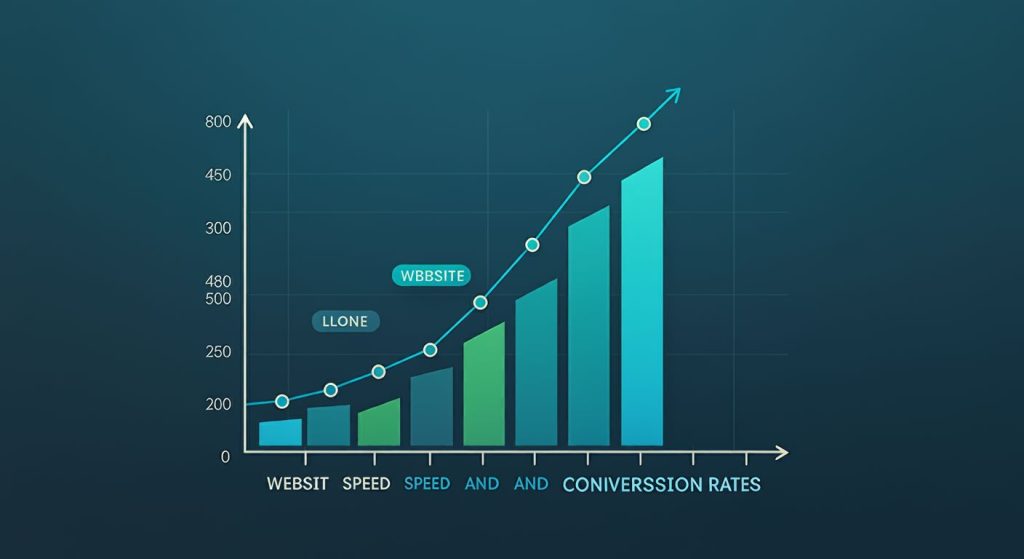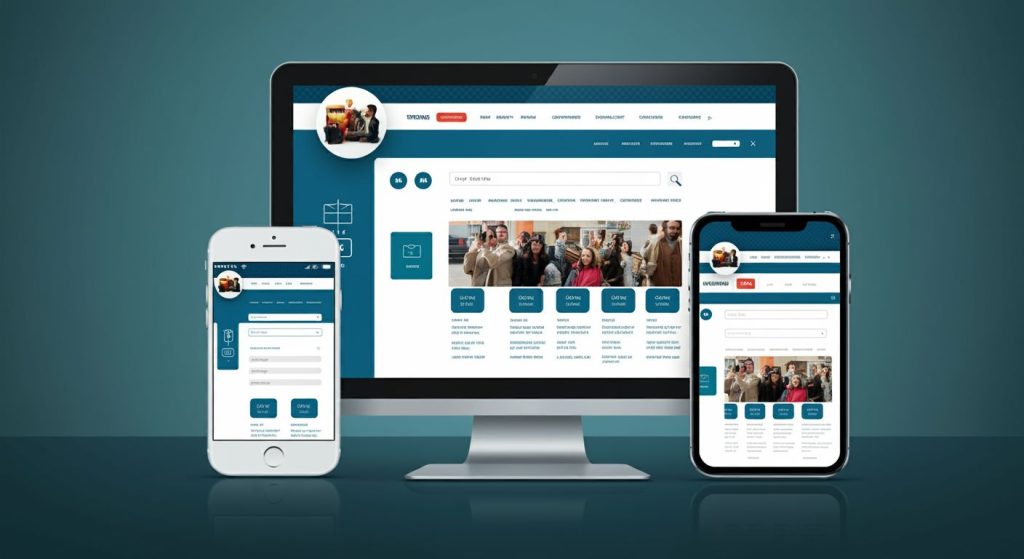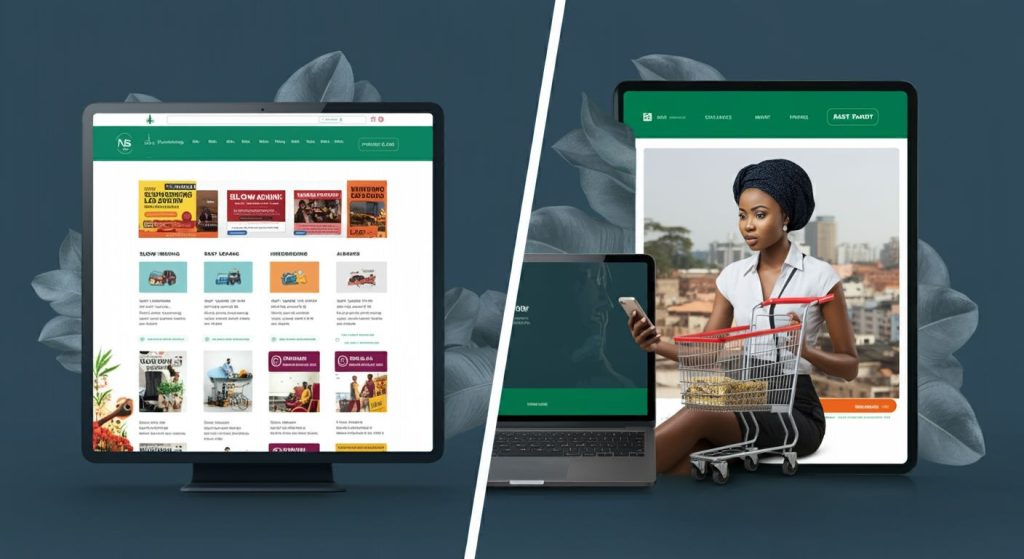In Nigeria’s thriving e-commerce landscape, speed is everything. With millions of Nigerians relying on the internet for shopping, a fast-loading website can mean the difference between gaining a loyal customer and losing them to competitors. In this article, we delve into why website speed is critical for Nigerian e-commerce sites, breaking down its significance, effects on business metrics, and actionable strategies to improve speed.

Table of contents
1. Why Website Speed Matters in Nigerian E-commerce

Website speed directly impacts user experience, search engine rankings, and sales conversions. In Nigeria, where internet connectivity varies greatly in speed and reliability, website performance becomes even more critical. When a page takes too long to load, potential customers may exit, frustrated, and look for alternatives.
Slow websites lead to higher bounce rates, which is disastrous in competitive markets. Nigerian e-commerce giants like Jumia and Konga invest heavily in website optimization to retain their massive customer bases. Smaller businesses must follow suit or risk irrelevance. Statistics show that a 1-second delay in page loading can reduce conversion rates by 7%, emphasizing the importance of speed in revenue generation.
Moreover, website speed directly affects trust. Nigerians are becoming more cautious about where they shop online due to cybercrime. A slow website often translates to an unreliable or unsafe experience in the eyes of many users. Fast-loading sites exude professionalism and build trust with customers. Also read about Tactics to Improve the Reputation of Your Online Business.
2. The Impact of Speed on Search Engine Optimization (SEO)

Search engines, particularly Google, prioritize website speed in their algorithms. In Nigeria’s e-commerce sector, where businesses compete for visibility, ranking high on search results is crucial. Google’s Core Web Vitals metrics, including Largest Contentful Paint (LCP) and First Input Delay (FID), emphasize the importance of fast, interactive, and visually stable websites.
For Nigerian businesses targeting local SEO, speed is critical. A website optimized for speed stands a better chance of appearing in search results for terms like “affordable smartphones in Lagos” or “buy groceries online in Abuja.” As mobile users account for over 80% of Nigeria’s internet users, mobile-first indexing makes speed on mobile devices particularly vital.
Speed optimization is not just a technical requirement—it’s a competitive advantage. E-commerce businesses with faster websites enjoy more organic traffic, leading to lower customer acquisition costs and better ROI on SEO investments. Learn Why Your Nigerian Business Website Needs to Load in Under 3 Seconds.
3. The Relationship Between Website Speed and Conversions

The connection between website speed and conversion rates cannot be overstated. Nigerian consumers are accustomed to quick access to information and instant gratification. A delay in load times can disrupt the buyer’s journey and reduce the likelihood of completing purchases.
Consider this scenario: a Nigerian shopper is purchasing groceries online but encounters delays on the checkout page. Chances are, they’ll abandon their cart. Statistics show that 53% of users abandon a website if it takes more than three seconds to load. With Nigeria’s burgeoning middle class and increasing reliance on online shopping, such losses are unacceptable.
Improved website speed reduces cart abandonment rates and encourages impulsive purchases. For subscription-based e-commerce platforms, such as meal delivery or educational content providers, speed also influences recurring customer loyalty. A seamless experience fosters repeat business, which is critical for long-term success.
4. Technical Challenges in Optimizing Speed for Nigerian E-commerce Sites

Many Nigerian e-commerce sites face unique challenges when it comes to speed optimization. Issues like poor hosting infrastructure, lack of local content delivery networks (CDNs), and bulky website designs often plague these platforms.
- Hosting Choices: Many Nigerian e-commerce businesses opt for cheaper hosting solutions, leading to slower site performance. Investing in high-quality hosting providers with local servers can dramatically improve speed.
- Content Delivery Networks (CDNs): A CDN stores website content closer to the end user, reducing latency. For Nigerian sites with global audiences, integrating CDNs can be a game-changer.
- Heavy Websites: Many Nigerian sites are bloated with large images and unnecessary scripts. Image compression, lazy loading, and minifying CSS/JavaScript can solve this issue.
Addressing these challenges requires both investment and expertise. Partnering with web developers experienced in speed optimization ensures businesses remain competitive.
5. Strategies to Improve Website Speed for Nigerian E-commerce Sites

To enhance website speed, Nigerian e-commerce businesses can implement these actionable strategies:
- Optimize Images: Use tools like TinyPNG or ImageOptim to compress images without sacrificing quality.
- Enable Browser Caching: Allow browsers to store elements of your website locally, reducing load times for returning visitors.
- Invest in a Reliable Hosting Provider: Choose hosting solutions with data centers closer to Nigeria or use global platforms with excellent server performance.
- Leverage CDNs: Platforms like Cloudflare or Akamai help distribute content more efficiently.
- Implement Lazy Loading: Load only the images visible to the user, improving page load times.
- Minify CSS, JavaScript, and HTML: Remove unnecessary code to enhance load speed.
By adopting these strategies, Nigerian e-commerce sites can deliver faster, more enjoyable user experiences, driving sales and boosting customer satisfaction.
6. Case Studies: Successful Nigerian E-commerce Websites

Several Nigerian e-commerce websites have set benchmarks in website speed optimization:
- Jumia: Known for its fast load times despite having a vast inventory, Jumia leverages advanced hosting and caching mechanisms.
- Konga: With a user-friendly interface and quick load speeds, Konga has remained a leader in Nigeria’s online retail sector.
- PayPorte: A fashion-focused platform that excels in speed optimization, ensuring seamless browsing and transactions.
These companies demonstrate that prioritizing speed isn’t just a technical concern but a strategic business decision. Their success stories highlight the rewards of investing in robust technology and expertise.
Conclusion
Website speed is the cornerstone of success for Nigerian e-commerce sites. It directly influences user experience, search engine rankings, and conversion rates while addressing the unique challenges posed by Nigeria’s digital landscape. Businesses must embrace strategies like image optimization, reliable hosting, and leveraging CDNs to remain competitive.
In a country where online shopping is becoming a daily norm, a fast-loading website is no longer optional—it’s a necessity. By prioritizing speed, Nigerian e-commerce businesses can position themselves as leaders in a rapidly evolving market, ensuring long-term growth and customer satisfaction.



